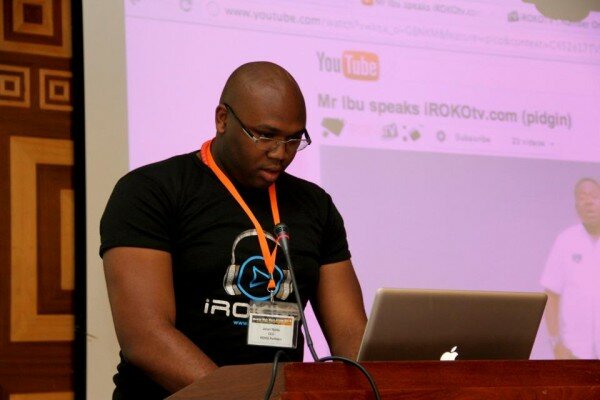Business
Jason Njoku Explained Why the Nigerian Market Beat iROKOtv Despite Heavy Investment

Now under renewed public scrutiny following a court order freezing his bank accounts amid a widening debt crisis, Njoku’s blog post reads like both a confession and a postmortem on the painful realities of doing business in Nigeria’s volatile digital economy.
“We weren’t winning. We weren’t really losing either. We were just there, in full survival mode,” he wrote, capturing the tone of a decade-long struggle that began with high hopes and ended in reluctant retreat.
The Rise and Stall of iROKOtv
iROKOtv entered the African streaming scene in 2011, backed by global investor Tiger Global, who had previously invested in Netflix. With an initial focus on distributing Nollywood content to the diaspora, iROKOtv found early success catering to international users who were more digitally enabled and willing to pay for premium African content.

However, by 2015, the company pivoted heavily into Nigeria, aiming to capture the local market. That pivot would ultimately prove financially draining.
Despite raising over $35 million in venture capital and burning through over $100 million in operational spending across a decade, iROKOtv struggled to gain a foothold in Nigeria. The platform found itself fighting to survive amid fierce competition from international giants like Netflix, Amazon, Showmax, and Iflix—all of whom also poured hundreds of millions into the African market.
But as Njoku explained, it wasn’t just about competition. It was about the market itself.
“If iROKOtv was losing, could they point to someone who was beating us?” Njoku asked in one particularly tense board meeting. “In the startup world, that’s usually the outcome of underperformance. But in this case, there wasn’t anyone succeeding. So my simple assertion was that the market was winning.”
Data, Payments, and Deep Market Constraints
Njoku described how Nigeria’s infrastructure deficiencies—particularly expensive data, underdeveloped payment systems, and low per capita income—created nearly insurmountable obstacles to scaling a subscription-based streaming business.
At a time when data bundles were unaffordable for most Nigerians and fintech integrations were still maturing, streaming struggled to achieve mass adoption. Even with mobile kiosks, outbound agents, and peer-to-peer file sharing, iROKOtv could not overcome what Njoku now views as a mismatch between product and purchasing power.
“Our GDP per capita was just too small to support even a $5/month product,” he wrote. “$5/month is a luxury I doubt even 250,000 Nigerians can reliably afford.”
ROK: The Hidden Success Story
While iROKOtv floundered, ROK Studios, its content production and TV channel arm, quietly thrived. With under 30 employees, stable partnerships with global pay-TV platforms like DStv and Sky, and EBITDA margins of 35–40%, ROK became iROKO’s most valuable asset.
In 2019, this value became crystal clear when iROKO sold a majority stake in ROK Studios to French media giant Canal+ for $25 million. That sale delivered $5 million in special dividends and was supposed to fuel iROKOtv’s next growth phase. But then, COVID-19 happened.
The pandemic briefly lifted iROKO’s international streaming revenues, but Nigeria’s economy went into reverse, devastated by border closures, FX restrictions, and consumer belt-tightening. iROKOtv burned through most of its post-exit cash trying to stay alive.
By 2023, the company finally exited Nigeria altogether. It has not processed Naira payments since then.
A Sobering Conclusion
Now, as legal battles mount and iROKOtv’s financial challenges deepen, Njoku is unflinchingly clear about the missteps.
“Did it need $1B+ to figure this out? Absolutely not,” he wrote. “Streaming wasn’t the winning model for Nollywood in Nigeria. Content, channels, and distribution were.”
He acknowledged that he might have reached the same conclusion with $5–10 million, rather than the $100 million iROKO eventually spent.
Cautionary Lessons for Founders
Njoku ended his reflection by issuing a warning to other African founders: “Don’t over-raise.”
He recounted how he once advised the founder of logistics platform Kobo360 not to accept large funding rounds without clear market proof. In both cases, the capital raised was not enough to overcome unfavorable unit economics, market immaturity, and macro instability.
For iROKOtv, it wasn’t incompetence that sank the ship. It was the unforgiving realities of the market.
“It’s okay that we tried and failed,” Njoku concluded. “It’s okay that we accept the limitations in the domestic market we find ourselves in.”
RECOMMENDED FOR YOU
“I Was a Womanizer, But I Changed” — Daniel Etim-Effiong Reflects on Past Relationships and Growth
































